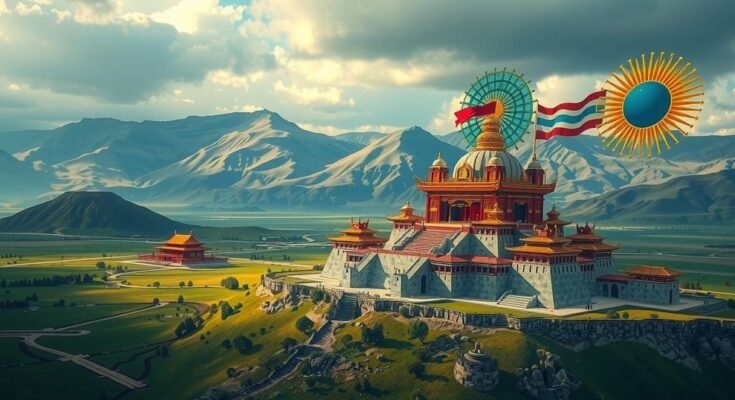The state visit by Kazakh President Kassym-Jomart Tokayev to Mongolia represents a pivotal moment in reestablishing and enhancing bilateral relations, which had been stagnant for 16 years. The dialogue focused on expanding economic cooperation, particularly in technology and mining sectors, with ambitious trade goals set for the near future and significant agreements signed during the visit.
The recent state visit by President Kassym-Jomart Tokayev to Mongolia marked the first visit by a Kazakh leader in sixteen years and highlighted Kazakhstan’s pursuit of stronger strategic relations with its neighbors. This visit was particularly significant as, despite a history of diplomatic ties extending over three decades and a significant Kazakh community in Mongolia, relations had stagnated under the leadership of former President Nursultan Nazarbayev. Historical tensions had arisen due to Mongolia’s political instability, illustrated during violent protests following contested parliamentary elections in 2008, which drew parallels to broader regional upheavals characterized as an ‘export of revolutions.’ For Kazakhstan, the presence of over 117,000 Kazakhs living in Mongolia, alongside cultural connections through media and publications, serves as a robust foundation for enhancing bilateral relations. The discussions between President Tokayev and President Ukhnaagiin Khurelsukh of Mongolia spanned several areas of potential cooperation, indicating mutual interest in establishing a strategic partnership. This dialogue revitalized previously declining trade volumes, which had plummeted during the pandemic but have since rebounded impressively, with projections of reaching $500 million in the near future. The Kazakh delegation introduced significant agreements, including one for an Earth observation satellite project, marking a substantial stride in Kazakhstan’s space endeavors, and another focusing on collaboration in nuclear energy, drawing on Kazakhstan’s recent referendum supporting its nuclear industry. Furthermore, potential joint explorations and developments in mining critical minerals align with global demand for such resources, offering substantial economic opportunities for both nations. Rustem Mustafin, Deputy Director at Kazakhstan’s Institute for Philosophy, Political Science and Religious Studies, underscored the importance of fostering foreign investment and creating conditions conducive to high-tech industry development. His commentary emphasized the necessity for collaboration in education and local innovation initiatives.
Kazakhstan and Mongolia have maintained diplomatic relations for over three decades, yet these ties had been underdeveloped since the presidency of Nursultan Nazarbayev. The pause in relations can be attributed to Mongolia’s political challenges, including significant protests and electoral violence that historically hindered diplomatic engagement. Tokayev’s visit comes at a time when both nations are looking to enhance their economic and strategic partnerships, facilitated by a thriving Kazakh diaspora in Mongolia and the mutual recognition of the benefits of increased cooperation in various sectors, particularly mining and technology.
In conclusion, President Kassym-Jomart Tokayev’s landmark visit to Mongolia signals a renewed commitment to strengthening the partnership between Kazakhstan and Mongolia. By addressing both political and economic avenues for collaboration, the two countries are poised to enhance their strategic ties significantly, leveraging their historical connections and mutual interests in trade, technology, and resource development. This visit not only revitalizes previous diplomatic engagement but also establishes a framework for future cooperation that could substantially benefit both nations.
Original Source: timesca.com




